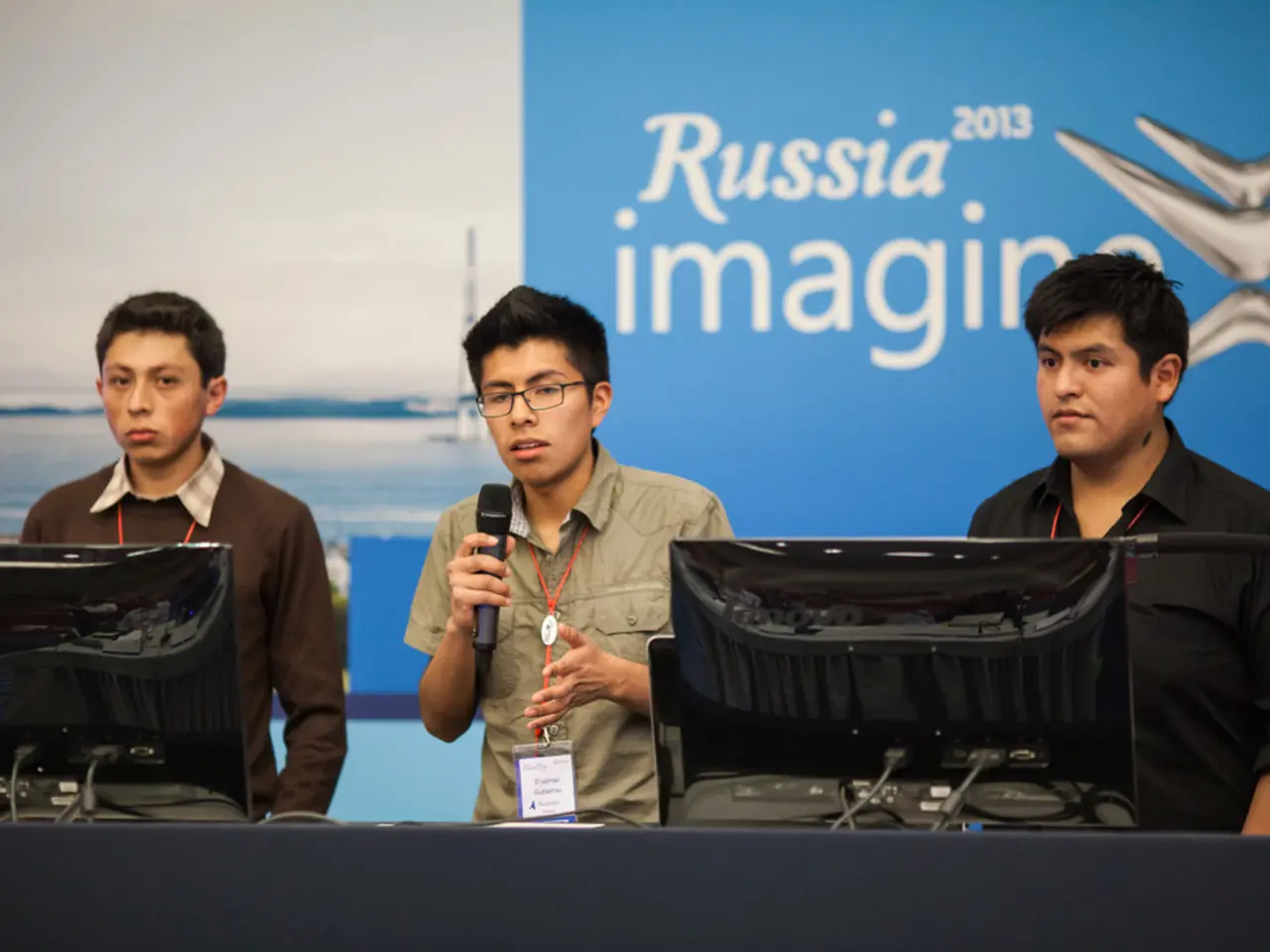Foreboding Forecasts on the Employment Landscape of the Middle Class by 2030
==========================================================
The world of work is undergoing a significant transformation, with the rise of AI-driven tax software, automation tools, and the integration of AI in various sectors. This shift is causing concern for the middle class, as approximately 20% of accounting roles and other white-collar professional jobs, including those in the legal and financial sectors, are at risk of displacement.
This wave of automation is pushing accounting professionals and other middle-class workers to pivot towards higher-value advisory roles that require human judgment and client relationship skills. However, the current wave of automation may not generate sufficient replacement employment opportunities for middle-class sectors, and the new jobs created may concentrate in low-wage service sectors that don't provide comparable economic security.
To address these challenges, collaborative efforts from educational institutions, policymakers, personal career planning, and businesses are needed to create inclusive pathways to prosperity in an increasingly automated economy. The World Economic Forum's Future of Jobs Report 2025 suggests around 170 million new jobs will be created by 2030, but most will require advanced digital and technological skills.
One potential solution is reskilling and upskilling programs. As many middle-class roles involving routine or analytical tasks are vulnerable to AI disruption, actively retraining workers for emerging jobs is critical. In Australia, for example, while 60% of workers are willing to retrain, lack of funding or clarity about what to learn limits adaptation, pointing to the need for accessible, targeted training programs supported by employers and government.
Policy and economic support can also help reduce inequality by ensuring workers are not left behind. Coordinated public policies can tie public funds to AI education and incentivize companies to hire reskilled workers from diverse backgrounds, thereby supporting economic resilience and inclusivity.
Job creation in AI-related fields can also offset some job displacement by emerging opportunities. AI itself can be leveraged to create millions of new dignified middle-class jobs by empowering underrepresented groups and fostering startups focused on AI-for-good.
Adjusting social safety nets and labor protections might also be necessary to manage the potential disruption in employment stability. Reforms such as stronger labor protections, universal basic income, or wage supports could help workers through transitions.
Tailored approaches for different economies are also important. Low- and middle-income countries may experience less direct job loss due to AI, but could focus on adopting AI for productivity augmentation while developing infrastructure to better integrate these technologies into the workforce.
In conclusion, the combination of education, inclusive economic policy, and strategic investment in new AI-driven opportunities offers a comprehensive way to support the middle class amid AI and automation changes in the job market. However, income inequality is likely to worsen as middle-income jobs disappear at accelerating rates, and productivity gains will no longer translate to employment growth for the middle class due to AI-driven productivity improvements. The erosion of middle-class jobs could trigger significant social and political instability, making it crucial for policymakers and businesses to address these challenges proactively.
References:
- The World Economic Forum
- McKinsey & Company
- The Brookings Institution
- The OECD
- The Atlantic
- In an increasingly automated economy, it becomes essential to invest in education and self-development, focusing on advanced digital and technological skills, as predicted by the World Economic Forum's Future of Jobs Report 2025, to secure promising career paths in the face of artificial-intelligence-driven disruptions.
- To protect the middle class from the potential displacement in traditional white-collar jobs, such as accounting, and to create more dignified middle-class jobs, policymakers and businesses should facilitate reskilling and upskilling programs designed to train workers for AI-related roles, thereby promoting career development and fostering economic resilience and inclusivity.




